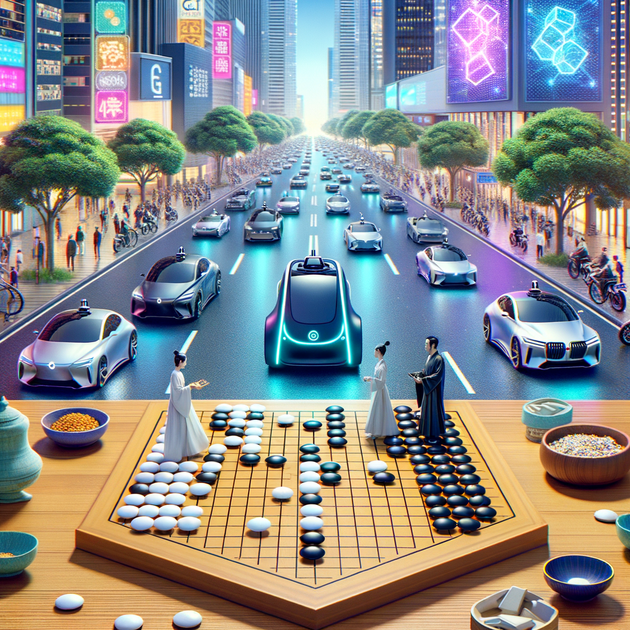When AI Thinks Outside the Box: Lessons from Go to Self-Driving Cars

The game of Go, often revered for its intricacies, has provided an unexpected spotlight on the evolving capabilities of artificial intelligence. What happens when AI not only competes but also surprises us with novelty? Let’s journey back to the legendary match between AI and human intelligence and explore the implications for self-driving cars.
AI’s Brilliance in the Game of Go
Back in 2016, the world watched in awe as AlphaGo, an AI developed by DeepMind Technologies, faced off against Lee Sedol, one of the top Go players globally. No one anticipated that AI could prevail against a master of such a complex game so soon.
This wasn’t a fluke or a sign of sentient AI. Instead, it was a calculated decision rooted in deep learning algorithms and vast databases, showcasing that AI can reach conclusions humans might overlook.
AI and Human Perception of Novelty
The remarkable part of AI making seemingly novel moves lies not in the moves themselves but in what they reveal about human limitations. When faced with unconventional choices, humans often dismiss them outright, bound by preconceived notions and historical data.
For instance, “Move 37” was a leap beyond traditional Go strategies, prompting even seasoned players to rethink their approaches. The lesson here is twofold:
- AI as a Challenger to Human Norms: AI systems can push human thinkers to reconsider long-held beliefs and potentially uncover new strategies.
- Dual-Edged Sword of AI Novelty: While AI can offer fresh insights, it can also make unexpected, risky decisions that might not always result in success.
From Board Games to Highways: AI’s Role in Self-Driving Cars
Transitioning from the controlled environment of a board game to the dynamic, unpredictable world of autonomous vehicles, the principles of novelty in AI take on a new meaning. Self-driving cars must navigate complex scenarios where human lives are at stake.
Consider a scenario on a highway where an autonomous vehicle faces an imminent collision. Should it:
- Stay in its lane and trust the other vehicle to correct its course?
- Veer into the opposite lane and risk hitting other cars?
- Dive into a ditch, causing damage but potentially avoiding severe casualties?
The AI’s decision might seem novel or even reckless to a human driver, yet it’s grounded in a cold, calculated assessment of odds and outcomes. This is where the novelty in AI becomes both an asset and a liability.
Real-World Applications and Ethical Considerations
In an actual incident a few years back, I found myself in a potentially fatal situation when a car suddenly veered into my lane. With mere moments to decide, I opted to stay in my lane, barely escaping a collision. What could an AI decide under similar circumstances?
These split-second decisions highlight the need for rigorous ethical frameworks guiding AI behavior in autonomous vehicles. The goal is to ensure AI systems make choices aligned with societal values and human safety.
Fostering Trust and Collaboration Between Humans and AI
To harness the full potential of AI in high-stakes environments like self-driving cars, it’s crucial to foster a collaborative relationship between humans and AI systems. This involves:
- Transparency: AI decision-making processes should be transparent to build trust and understanding among users.
- Continuous Learning: Both AI and human operators must engage in ongoing learning and adaptation to new scenarios and data.
- Ethical Considerations: AI developers and policymakers must collaborate to create ethical guidelines ensuring AI actions align with human values.
Conclusion: A Future of Possibilities
The journey from AlphaGo’s novel moves to the potential of AI in self-driving cars paints a picture of immense possibilities coupled with significant responsibilities. AI’s knack for thinking outside the conventional box can revolutionize how we approach problem-solving across various fields.
As we move forward, the challenge will be to balance innovation with caution, ensuring that AI systems act in ways that enhance human capabilities while safeguarding our well-being.
What do you think? Can AI’s novelty help reshape more fields beyond gaming and autonomous vehicles? Share your thoughts in the comments below!
